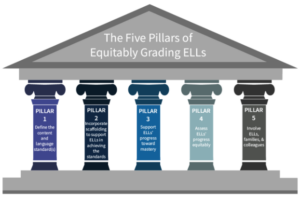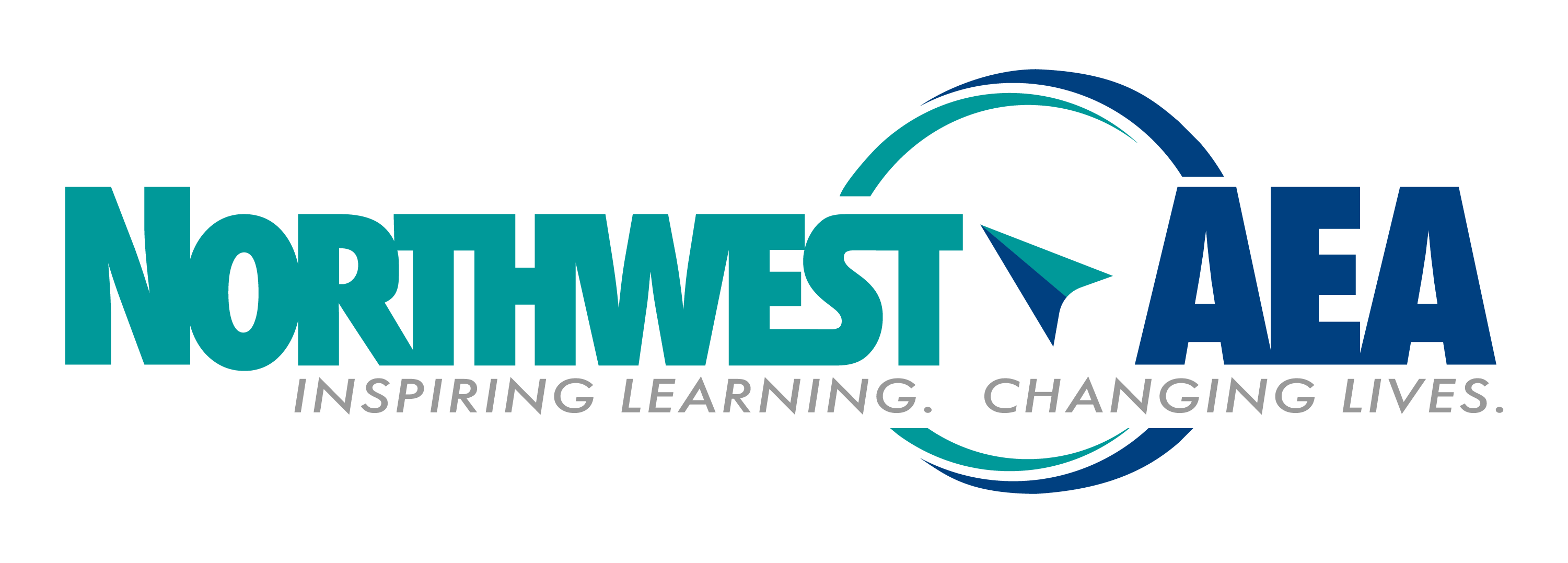Educators responsible for grading English language learners (ELLs) must navigate the complexities of assessing their students. This task can be particularly challenging, given the multitude of factors involved. These include the student's level of English proficiency, background knowledge, cultural background, and English vocabulary.
It's crucial to recognize that grading and instruction are closely linked, as the quality of instruction directly influences fair and equitable grading practices. You cannot fairly assess English language learners (ELLs) unless you have already prepared them to understand the content being taught. This is accomplished by providing comprehensible input through the use of appropriate scaffolds and accommodations.
| The Five Pillars of Equitably Grading English Language Learners (ELLs) offer educators a foundational framework. |  |
Pillar One: Identify and define the C=content and language standard(s).
To grade English Language Learners (ELLs) fairly, teachers should establish clear content and language standards and learning objectives. These objectives should be communicated to ELLs using student-friendly language. Teachers should also define success criteria and provide models of strong work samples, including those from ELLs at different proficiency levels, to help students understand expectations and see themselves reflected in exemplary work.
Pillar 2: Incorporate scaffolding to support ELLs in achieving the standards.
To help English Language Learners (ELLs) access grade-level content standards, it's important to provide scaffolding in three key areas: materials, instruction, and student grouping. Scaffolds should be tailored to the ELLs' English proficiency level, individual strengths and needs, and the lesson's demands. Teachers should set expectations for gradually removing scaffolding as students gain language proficiency and content knowledge. Collaboration between EL and content teachers is crucial to determine and implement appropriate scaffolds for ELLs.
Pillar 3: Support ELLs progress towards mastery.
To support English Language Learners (ELLs) and ensure fair grading practices, it's important not to use grades punitively. Provide ELLs with ample time and opportunities for learning, such as offering after-school sessions for extra support. Focus on ELLs' progress toward mastery, recognizing that not all grade-level standards may be fully achievable for some students. Allow ELLs to turn in some work late without penalty, if they have unique circumstances such as working late or taking care of siblings at night while parents work. Homework should be used as non-graded practice to support learning.
Pillar 4: Assess ELLs progress equitably.
To assess English Language Learners (ELLs) fairly, teachers should design assessments and supports that enable ELLs to access and demonstrate mastery of content and language objectives. Scaffold assessments based on individual ELL strengths and needs, such as providing sentence frames or images to lighten the linguistic load. ELLs should practice with any scaffold during instruction that will also be used during an assessment. For group work, assign individual scores instead of a group grade to ensure that individual students, including ELLs, are not penalized if all group members do not contribute equally.
Pillar 5: Involve ELLs, families, and colleagues.
To ensure ELLs and their families understand grade-level expectations, grading processes, and report cards, it's important to explain these concepts in their home language whenever possible. Involve ELLs and their families in the grading process from the beginning of the school year or their enrollment, including setting learning goals. Co-grading, where EL and content teachers collaborate to assign grades and discuss final grades on report cards, is highly recommended to leverage expertise and strengthen collaboration for the benefit of ELLs.
Staehr Fenner, D., Kester, J., & Snyder, S. (n.d.). The five pillars of equitably grading ELLs. Colorín Colorado. Retrieved April 29, 2024, from https://www.colorincolorado.org/blog/five-pillars-equitably-grading-ells
For more information, contact Sherri Anderson (sanderson@nwaea.org) at Northwest AEA.
